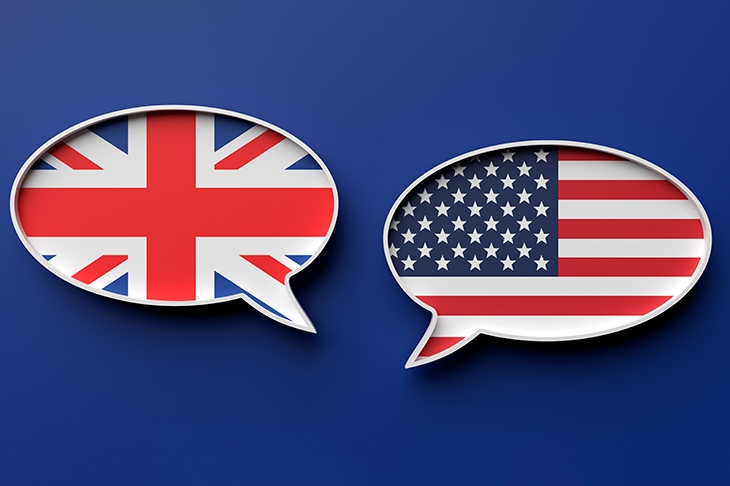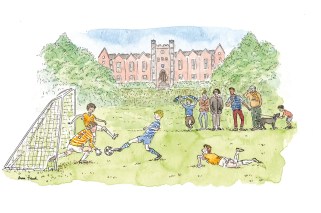I haven’t yet read the report published by the Commission on Race and Ethnic Disparities. But, looking at the recommendations, I think there is one missing detail. We also need some loose agreement on terminology attuned to the conditions of British English as distinct from American English.
Let me explain. I would not dare to pronounce on what is acceptable terminology in Spanish, for the simple reason that I do not speak the language and certainly don’t understand the context. Without context, you can’t fully understand meaning. So I truly do not know whether ‘negrito’ is offensive or, as many claim, a term of affection. Perhaps it can be both. Certainly Spanish uses far more physical epithets than we do. Astoundingly, it seems people called the Mexican drug lord El Chapo ‘Chapo’ — dwarf — to his face. We rarely use such terminology in English (although one of my colleagues did accidentally end an email to 5ft 6in Sir Martin Sorrell with ‘I look forward to seeing you shorty’).
Americans can’t delineate people by class because they haven’t got any, or by geography because they don’t know any
But while I think Americans would hesitate before pronouncing on what is acceptable in another language, they extend no leeway to other native English speakers. In a few cases Brits have been censored for a harmless utterance (saying ‘ladies’ lingerie’ in a hotel lift, when asked ‘what floor?’) which to anyone from the UK is entirely uncontentious. So it is annoying when Americans unilaterally declare certain English words off-limits, only to replace them with designations such as BIPOC, which are useless outside the US. African-American doesn’t even translate to Canada. You occasionally see an American trying to describe someone of colour outside the US, and their brain hits a wall.
The problem with Americans is that they can’t delineate people by class because they haven’t got any, and they can’t describe people by geography because they don’t know any. So the emphasis they place on race is slightly weird.
When I say they have no class, I mean that the American use of the phrase ‘middle class’ is so wide-ranging as to be baffling to any Brit. Essentially, when Joe Biden refers to the ‘great American middle class’ he means everyone who doesn’t own a helipad or sleep in their car. Likewise, why debate whether Kamala Harris is black or not? In British English she’s either your friend Kamala or, for clarification, your Jamaican–Indian friend Kamala. Jamaica to us is not part of New York. Obama had a Kenyan dad and a white US mum. We’re British. We know where Kenya is. I’m not taking any credit for this — it’s just that we discovered the world at a time when you had to know where a place was in order to exploit it.
And please god spare us the word ‘Asian’. It encompasses 4.8 billion people, from Vladivostok to Muscat. I recently received a corporate email, designed for US consumption, about anti-Asian discrimination, and had no idea what it meant. Pathans? Lascars? Parthians? OK, I get it, you can’t say ‘oriental’ any more, but Asian hardly replaces it, does it?
In any case, continents perpetuate an absurdly Romano-centric view of the world. Europe, Africa and Asia were words which arose to describe the world north, south and east of the Mediterranean, at a time when most of the world hadn’t been ‘discovered’. As for America, as everyone in Bristol knows, it was not named after Amerigo Vespucci, but after Richard Amerike, 15th-century Welsh–Bristolian merchant and possible owner of John Cabot’s ship. Amerike is an anglicisation of the Welsh ‘ap Meuric’, or son of Maurice. Hence America is better rendered as ‘Maurice’s Boy’s Place’.







Comments